- Home
- Jeremy Robinson
Empire (A Jack Sigler Thriller Book 8) Page 2
Empire (A Jack Sigler Thriller Book 8) Read online
Page 2
Kolmogorova followed, but with each step forward, she could feel the energy—her very life force—seeping away. Her body heat melted the snow clinging to her thermal undergarments, and just as quickly, the frigid night turned the dampness to ice. Physical exertion was no longer enough to ward off the chill. Her teeth began to chatter. In some remote corner of her mind, she realized that she could no longer feel the strange vibration in her bones. Whether that was because it had stopped or because she was losing feeling in her extremities, she could not say.
She quickened her pace and caught up. “Igor. We must go back.”
Before he could disagree with her, Slobodin stumbled and went down, nearly taking Igor with him. The expedition leader tried to lift him up, but the injured man pushed Igor’s hand away. “Zina is right,” he said through chattering teeth. “We will die out here. I am going back to the tent.”
“The tent is wrecked,” Igor said.
“We can still salvage blankets,” Kolmogorova said. “Our packs. Warm clothes.”
Igor shook his head. “We will make a fire. Build a shelter. We can survive.”
Slobodin paid no heed. He struggled to his feet and turned, heading back the way they’d come, but after only a few steps, he staggered and pitched forward again. Kolmogorova went to him and knelt to lift him up, but her fingers refused to work. Her hands were like two dead things at the ends of her arms.
“Igor, help me!” She raised her head and saw Igor, still trudging down the slope toward the forest. The woods were at least half a mile away. “Igor!”
He did not look back.
She turned back to Slobodin, but her efforts to raise him up were futile. “Rustem! You have to get up.”
When there was no response, she rose and started after Igor. The cold had settled into her joints, and it was all she could do to keep shambling forward. “Igor! Help me or Rustem will die!”
The reality of what she had just said hit her like a slap. It was already too late for Slobodin. She could not compel him to move, and she doubted Igor could either.
I have to save myself, she thought, but doing that seemed almost as impossible as saving her teammate.
She staggered after Igor Dyatlov, recognizing that with each step she took, she was committing to a course of action doomed to failure. The woods offered no salvation. Even if they could get a fire burning, it would not be enough to keep hypothermia at bay, not in their underwear and stocking feet.
“Igor. We must go back.” She tried to shout, but all she could manage was a hoarse whisper, swept away by the wind.
No, she thought. I must go back.
She turned and gazed back up the slope. The wreckage of the camp was hidden beneath a shroud of blowing snow, but she could still distinguish the footprints in the snow. If the storm did not cover them over, she might be able to find her way back.
And if she did, what then? The camp was in ruins. She would never survive the night, much less the long trek back to civilization. It could be days before anyone even thought to look for them.
But somebody already knows we’re here.
She raised her head and scanned the sky, searching for the helicopter with its searchlight. The army, she thought. The army did this to us. To Dubinina and Thibeaux-Brignolles and Zolotaryov.
They had done something to cause the madness, the transformation, and then they had watched from a distance to see the results.
But surely they won’t let all of us die.
She knew that was wrong, but in the absence of real hope, the lie kept her going until she could go no further.
DARK OPS
The Ural Mountains (Sverdlovsk Oblast), Russia
The Present
“This is King. Radio check, over.”
“Queen. Five by, over.”
“This is Bishop. I hear you.”
“Knight, loud and clear.”
“Rook, here. Loud and proud, over.”
King allowed himself a faint smile. The last reply, brash and irreverent, with little regard for protocols and standard operating procedure, was typical of the man who went by the callsign: Rook. “Good news. Our radios work. King, out.”
He switched off the throat mic and rolled over to look at the four people to whom he had just been speaking. They were arranged in a circle, facing out to provide three hundred and sixty degrees of security for their position. No more than ten feet separated the individual team members. Even though they were facing away from him, he could have easily heard their voices without using the short-range comm unit. But the radio check was standard operating procedure. The best time to identify a malfunction was before going into the sandbox, though technically they were already hip deep—and it wasn’t sand but snow.
Russia.
He shook his head. Five hundred miles from anything faintly resembling friendly territory. They had no safety net and no one standing by to pull their asses out of the fire if things went south.
And if that happened, if they screwed up, it would mean war between nuclear-armed superpowers. Hell, even if they succeeded, it might still mean war. The Russkies were pushing hard, testing the limits of American resolve, intent on exposing NATO as nothing more than a paper tiger. If the unit—his unit, US Special Forces, Operational Detachment D/Chess Team—could bring back proof of the Russian president’s true intentions, it might just be enough to unite the fractious European partners comprising the North Atlantic Treaty Organization (NATO). That might—just might—be enough to make Crazy Vlad take a step back from the brink.
The sky overhead was now a deep shade of purple, growing darker by the minute. It was go time. “Knight, head out. Set up an overwatch position. Where, is up to you.”
The figures were all wearing white winter camouflage shells, making it virtually impossible to distinguish one operator from another. One of them rose from his position and hefted his SVDS, the shortened variant of the venerable Russian ‘Dragunov’ sniper rifle.
The 7.62-millimeter long-range weapon wasn’t Knight’s tool of choice for the killing trade, but beggars didn’t get to be choosers. It was much easier to procure equipment on the local black market than it was to transport it across international borders. That was especially the case in Russia, where corruption was endemic and military-grade hardware, stockpiled since the Cold War, was easier to come by than reliable transportation.
The old pickup truck they’d driven from Yekaterinburg had given up the ghost halfway to the objective, forcing them to hump in the rest of the way on foot. It was a long slog through the snow to reach the place, which Rook had described, eloquently but accurately, as the ass-end of nowhere.
After moving only a few steps away from their release point, Knight seemed to vanish into the benighted landscape. King suspected that, even with sixth-generation night-optical devices (NODs), which were currently still in testing at DARPA, he would have been unable to locate the trained sniper. The man had an uncanny ability to disappear in almost any condition, but the snow and darkness greatly simplified that task. Unfortunately, they didn’t have sixth-gen NODs or much else in the way of the kind of equipment that usually went in their tool box for a mission like this. Some things were easier to acquire on the black market than others. The closest thing they had to night-eyes were light-amplification scopes mounted to their weapons. The old, Soviet-era technology was about as useful as the ‘night vision’ app on King’s iPhone, but it was better than nothing.
That was what he kept telling himself, anyway.
He turned his attention back to the objective, or more precisely, to a spot about a mile from their present location, which had been marked as the target site. He continued scanning the snowfield with his binoculars, looking for some hint of activity, anything to confirm their initial intel. But except for the darkness that now blanketed the landscape, the view had not changed appreciably since their arrival three hours before.
“Is anyone seeing what I’m not seeing?” he asked at length.
“I see jack and shit,” Rook offered. “But if that’s what you see, then…negative, over.”
Queen shrugged. “A secret military research city wouldn’t be much of a secret if it was out in the open for everyone to see.”
“Nothing is that secret.” King gestured in the direction of the emptiness they were surveilling. “No buildings, no roads, no LZ for helicopter resupply.”
“Could be underground,” Bishop said. “Self-contained. Or resupplied by underground train. We’ve seen that before.”
“If the place is dug in that deep,” Rook opined, “not a hellava lot for us to do here.”
“They have to breathe,” Queen said.
“Air vents.” King rose to his feet. “Let’s get started. We don’t have all night.”
“Yes we do,” Rook muttered. “Gonna take that long to find anything, too.”
King did not argue. Rook was probably being optimistic. But Queen was right, too. Even if the secret research city was buried deep underground, accessible only by tunnels located miles away, there would have to be a ventilation system. The bigger the facility, the bigger the air intake would have to be. It would be camouflaged, of course, invisible to satellite reconnaissance, but much harder to conceal at ground level, especially in winter.
“We’ll focus on that wooded area at my ten o’clock.” He keyed his mic. “Knight, we’re going to start our sweep. Keep an eye on us, over.”
“Both eyes,” came the reply. “Knight, out.”
“Like there’s anything else to look at out here,” Rook grumbled.
“Rook,” Queen barked. “Zip it.”
Rook, surprisingly, did.
They moved out, traveling in single file, with King in the lead. The others followed, placing their snowshoes in his tracks. It was an unnecessary precaution. There was not a shred of evidence to suggest that the site was patrolled or monitored. King was beginning to share Rook’s belief that the mission was a snipe hunt, but until they were safely back in the team room at Fort Bragg, he was going to continue operating as if every shadow concealed a Russian soldier with orders to shoot on sight.
Despite the utter stillness, he kept his recently acquired weapon—an AK-104 carbine, powder-coated white to blend in with both his camouflage and the environment—at the high ready. His index finger rested alongside the trigger guard, but it was poised to curl around the trigger at the first hint of trouble. He knew the others, even Rook, who was packing the squad automatic weapon—a durable PKM light machine gun—would remain equally vigilant until the operation was completed.
The stand of trees—cedars, judging by the smell and less than a square mile altogether—was a conspicuous green island in a sea of white. The trees were real, no doubt about that, but King got the sense that they had been placed, or more likely left behind when the surrounding area was logged. To hide something.
Something like the air intake for an underground research facility.
They were almost to the wood line when Knight broke radio silence. “Hold.”
King froze in place, saying nothing, waiting for Knight to elaborate. Several seconds passed before the sniper spoke again. “It’s gone. I think you’re clear.”
“I don’t know which worries me more,” Rook said before King could respond. “The word ‘it’ or the ‘I think’ part.”
“Knight, explain,” King said.
“Something big and furry came out the woods about a hundred yards left of your position, then it went back in. I don’t think it was human.”
“This is Russia,” Bishop remarked. “The bear is the national symbol.”
“Was it a bear, Knight?”
“Of course,” Bishop continued without missing a beat, “bears should be hibernating right now.”
“Maybe it’s the other kind of bear. You know, a big hairy guy named Boris who likes—”
“Rook!” Although barely louder than a whisper, Queen’s sharp exclamation ended Rook’s commentary.
“One or the other,” Knight said. “But my money’s on the former. It didn’t move like a man.”
King scanned the trees but saw no sign of movement beyond the veil of darkness. “Tangling with either one is not how I want this to go,” he said. “But what we’re after is probably in those woods. Close on me. We’ll go in tight. Maybe Boris will see that he’s outnumbered and give us some space.”
Before he could take another step however, Knight spoke in his ear again, and this time his voice was tinged with panic. “Stop!”
“Talk to me,” King said. This time, he did not remain motionless, but swept a 180 degree arc with the barrel of his weapon. “Is he back?”
“If so, he’s moving like the wind. Movement to your right, fifty—”
Knight’s transmission ended with a scritch of static, as if Knight had let off the transmit button a moment too soon. King swung his carbine in the indicated direction. He thought he saw something moving in the green display of his light-amplifying scope, but before he could be sure, the shape shrank back into the darkness.
“What the fuck?” Rook growled. “Knight, are you sure that’s the same guy? Bear? Whatever the hell it is?”
When Knight did not answer immediately, King started worrying. “Knight, talk to me.”
“Shit,” Bishop shouted. “Hostile, left. Twenty—”
The harsh report of gunfire drowned out the rest. King brought his carbine around and triggered two rounds into the woods, firing in the same direction as Bishop, even though he didn’t have a target.
“Abort. Fall back to the—”
Rook opened up with the PKM. Some of the 7.62-millimeter rounds found their targets, tearing through fur and flesh, spraying the snow with blood, but the wounds seemed only to enrage the creatures further. In the strobe-light of muzzle flashes, King saw not one or two shapes, but dozens of shaggy forms, swarming toward Rook, moving up from their rear.
They were not bears. Bears he could have wrapped his head around, but these things? The creatures had gotten behind them, flanked them, as if to drive them into the woods.
What the hell are they?
Rook poured a sustained burst into one of the creatures. The bullets drilled through the beast’s torso, tearing away huge chunks of ragged flesh, but even as the thing went down, three more rushed Rook’s position. The machine-gunner disappeared under an avalanche of dark fur and the gun abruptly went silent, permitting King to hear Rook’s screams.
Then those stopped, too.
“Close ranks! Back to back.” King’s voice cracked with desperation, as he shouted the order. He could not see Queen and Bishop behind him, but he could feel them, pressing against his back. He could hear the near constant report of gunfire. He added his own weapon to the symphony, peering through the scope at bestial forms that were moving so fast he couldn’t get a clear look at them. There was barely time to fire, then reacquire and fire again. After a few seconds, there was no longer any need to aim or even look through the scope.
The creatures were everywhere.
He heard the other weapons firing on full automatic, and he switched his own weapon over as well. Then he emptied the rest of the magazine into the roiling wave of flesh and fur in a single trigger pull.
There was no time to switch out the magazine. He drew his secondary weapon, a sturdy semi-automatic pistol. But before he could raise it to trigger a shot, something struck his forearm, knocking the gun from his instantly numbed fingers. Then suddenly he was buried under a writhing avalanche of hair and muscle. The smell of body odor—rank and musky—filled his nostrils, stronger even than the sulfurous stink of burnt gunpowder. He started to gag uncontrollably. He fought back, trying to pull free of the creatures’ grip, not because he was a Special Forces soldier, proficient in close-quarters combat and sworn to resist capture with his last breath, but because he was terrified.
Nothing in his training had prepared him to battle something like this.
His struggles were futile, an
d as the blows rained down on him, driving him to the edge of consciousness, the last coherent thought in the mind of U.S. Army Master Sergeant Joseph Hager—operational callsign: King—was that his mother and father had lied to him all those years ago.
Monsters were real.
Between him and blue eternity, there is only a window.
More precisely, a thin bubble of transparent polymers, deceptively thin, he knows, for the cockpit canopy has been designed not only to withstand the heat and shearing forces of supersonic travel but also the impact of anti-aircraft shrapnel and cannon fire. It is not a perfect defense against either by any means, but given the extreme environments in which the fighter jet was designed to operate, perfect is a relative concept. Humans weren’t meant to travel at two-and-a-half times the speed of sound, twenty thousand feet above the Earth’s surface. That he is doing it now would have been considered a divine miracle in centuries past.
His stomach drops as the nose of the aircraft rises abruptly, the G forces pushing him down and back.
“Hang on, Siggy!”
The voice, her voice…her clear, joyous, strong voice…resonates in his ears, reminding him that he is not alone. Or in control. She is.
Julie!
He feels an almost overwhelming need to speak to her. There is something she needs to know, something critically important, but what it is, he cannot remember. Something prevents him from remembering. From warning her.
The pressure yields as the jet brakes, shedding speed with such abruptness that it feels like they have come to a dead stop in mid-air. This is an illusion; the plane is still rocketing across the sky, but now it is merely traveling only about as fast as a commercial airliner. To either side of the cockpit, the wings swivel outward until they are perpendicular to the airframe. The teardrop shape of the airfoils supply lift when the aircraft is traveling at subsonic velocities. As the plane approaches the Mach barrier, traditional aerodynamic concepts will no longer apply, and the wings will fold back against the fuselage so the increased drag does not rip the aircraft apart.

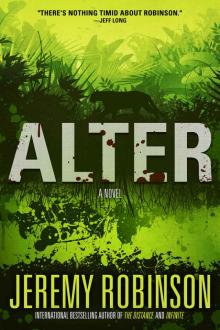 Alter
Alter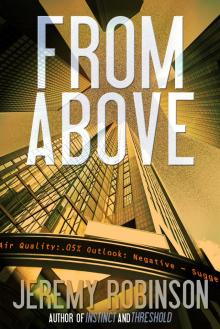 From Above - A Novella
From Above - A Novella Flux
Flux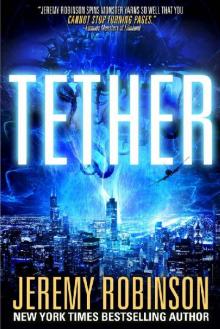 Tether
Tether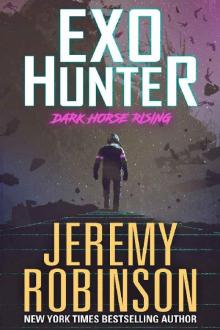 Exo-Hunter
Exo-Hunter Pulse
Pulse Cannibal
Cannibal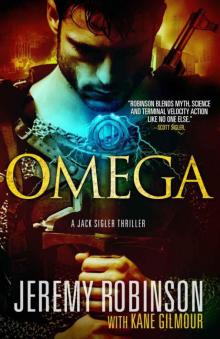 Omega: A Jack Sigler Thriller cta-5
Omega: A Jack Sigler Thriller cta-5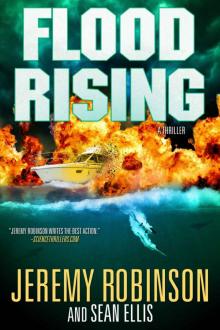 Flood Rising (A Jenna Flood Thriller)
Flood Rising (A Jenna Flood Thriller)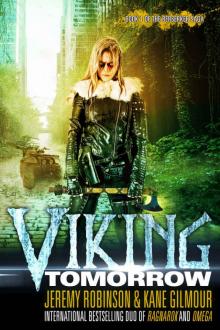 Viking Tomorrow
Viking Tomorrow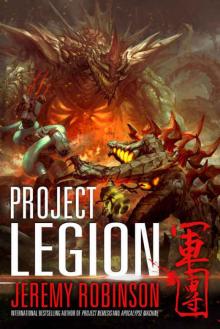 Project Legion (Nemesis Saga Book 5)
Project Legion (Nemesis Saga Book 5) BENEATH - A Novel
BENEATH - A Novel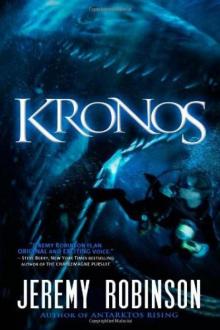 Kronos
Kronos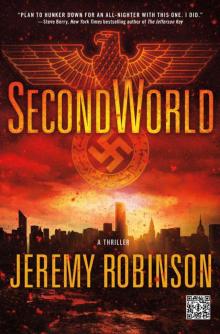 SecondWorld
SecondWorld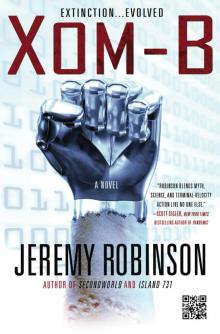 XOM-B
XOM-B Forbidden Island
Forbidden Island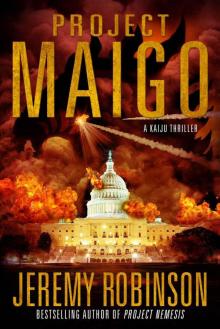 Project Maigo
Project Maigo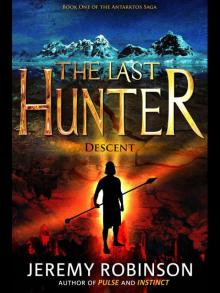 The Last Hunter - Descent (Book 1 of the Antarktos Saga)
The Last Hunter - Descent (Book 1 of the Antarktos Saga)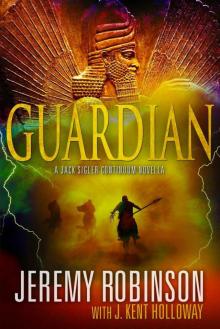 Jack Sigler Continuum 1: Guardian
Jack Sigler Continuum 1: Guardian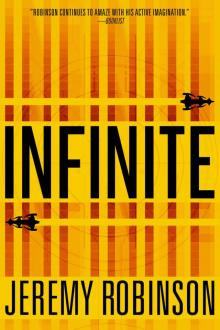 Infinite
Infinite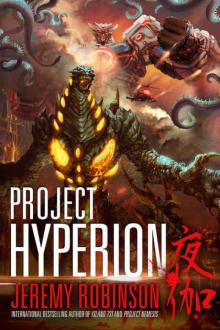 Project Hyperion
Project Hyperion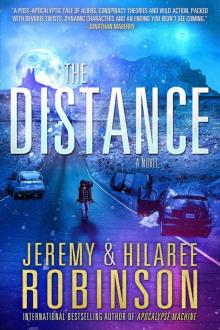 The Distance
The Distance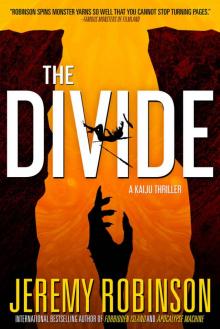 The Divide
The Divide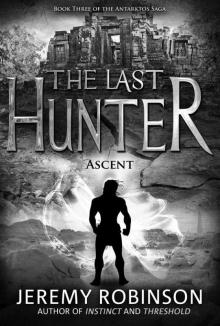 The Last Hunter - Ascent (Book 3 of the Antarktos Saga)
The Last Hunter - Ascent (Book 3 of the Antarktos Saga)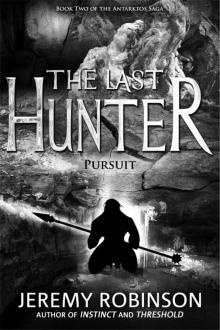 The Last Hunter - Pursuit (Book 2 of the Antarktos Saga)
The Last Hunter - Pursuit (Book 2 of the Antarktos Saga) Raising the Past
Raising the Past The Others
The Others The Last Hunter - Collected Edition
The Last Hunter - Collected Edition Threshold
Threshold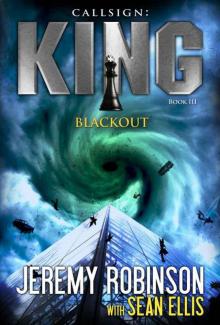 Blackout ck-3
Blackout ck-3 Antarktos Rising
Antarktos Rising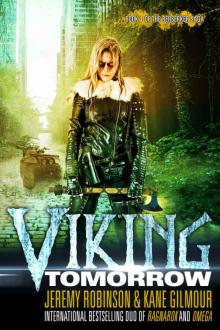 Viking Tomorrow (The Berserker Saga Book 1)
Viking Tomorrow (The Berserker Saga Book 1) The Didymus Contingency
The Didymus Contingency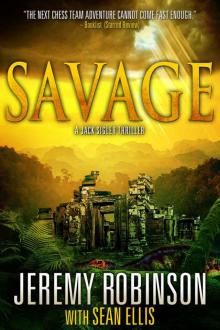 Savage (Jack Sigler / Chess Team)
Savage (Jack Sigler / Chess Team)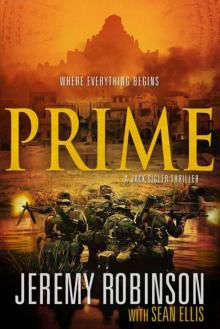 Prime
Prime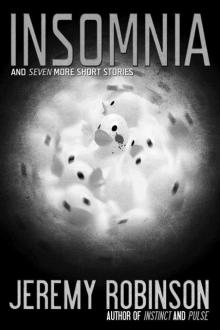 Insomnia and Seven More Short Stories
Insomnia and Seven More Short Stories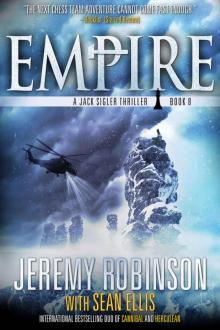 Empire (A Jack Sigler Thriller Book 8)
Empire (A Jack Sigler Thriller Book 8)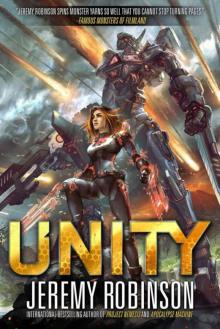 Unity
Unity Instinct
Instinct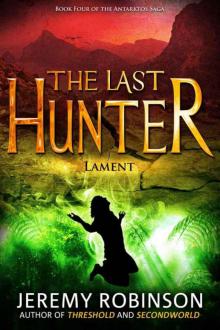 The Last Hunter - Lament (Book 4 of the Antarktos Saga)
The Last Hunter - Lament (Book 4 of the Antarktos Saga)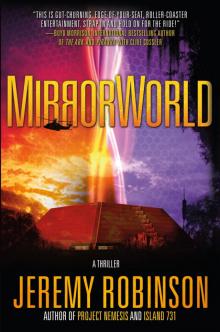 MirrorWorld
MirrorWorld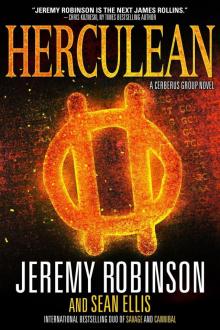 Herculean (Cerberus Group Book 1)
Herculean (Cerberus Group Book 1)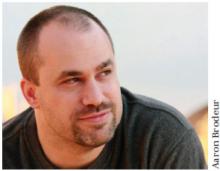 Island 731
Island 731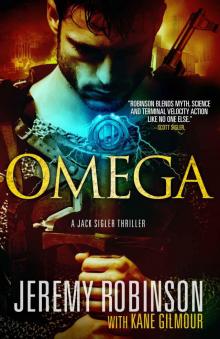 Omega: A Jack Sigler Thriller
Omega: A Jack Sigler Thriller Patriot (A Jack Sigler Continuum Novella)
Patriot (A Jack Sigler Continuum Novella)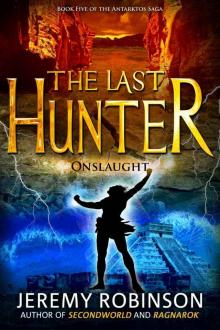 5 Onslaught
5 Onslaught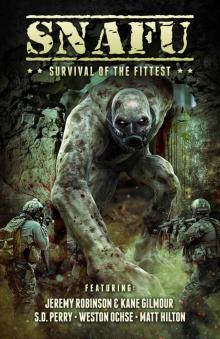 SNAFU: Survival of the Fittest
SNAFU: Survival of the Fittest Helios (Cerberus Group Book 2)
Helios (Cerberus Group Book 2)